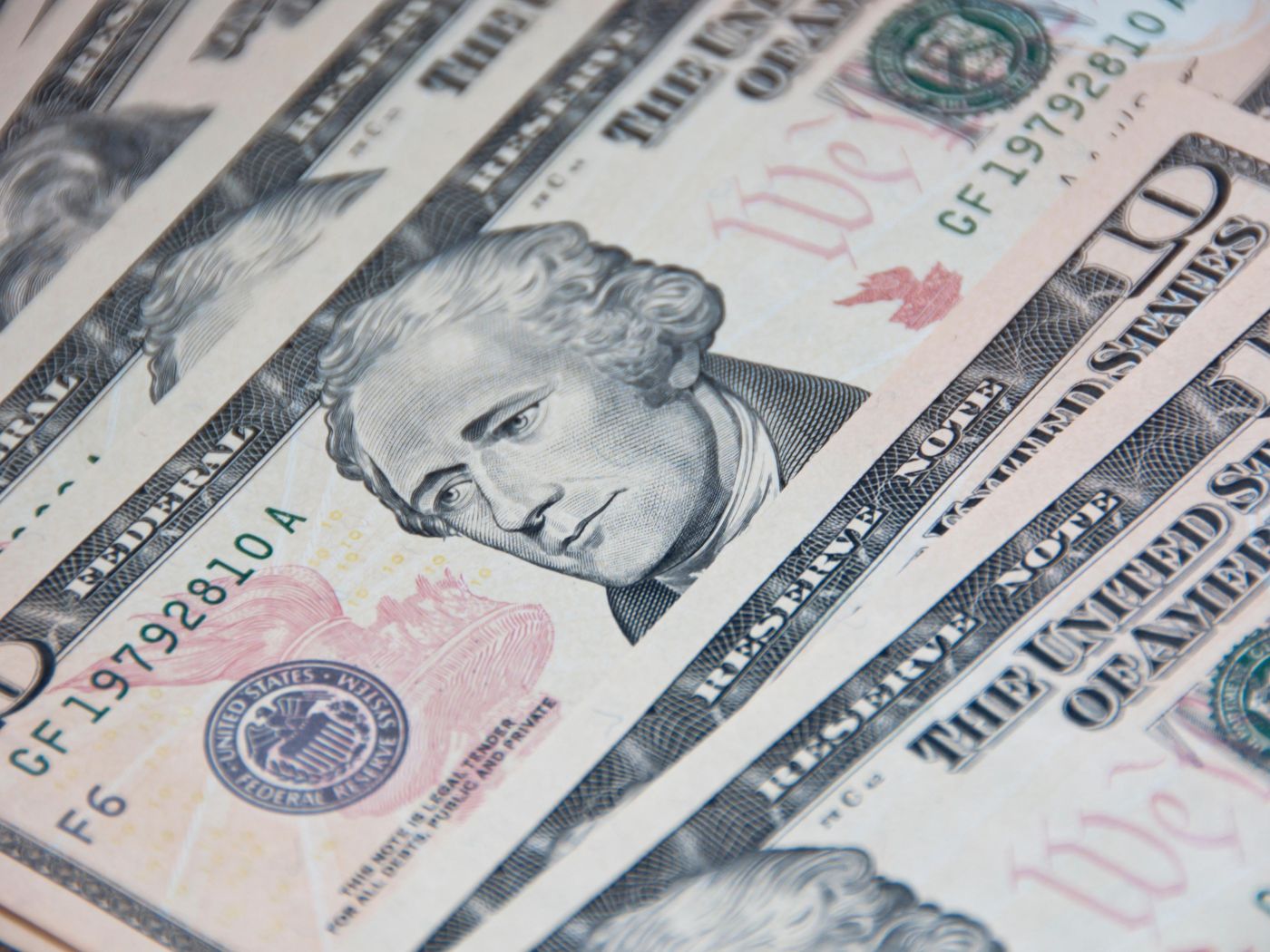In September 1789, President George Washington assigned Alexander Hamilton the task of solving the nation's debt. As Secretary of the Treasury, Hamilton had exactly 110 days to prepare a report on the nation’s credit status, which he would present to Congress in January.
This was a daunting assignment, to say the least. Between foreign, domestic and state debts, the United States owed almost $80 million, due in large part to the pay and supply of the Continental Army. Current income from federal tariffs and excise taxes amounted to just $4.4 million, enough to cover current government operations. Adding to the complexity of his task, the French were now in trouble politically and financially, and an unknown number of original bond owners had sold their government debts to speculators.
All solutions seemed to have roadblocks. If Hamilton shrugged off the debt as a responsibility of the Confederation, no lender would ever loan to the U.S. again and the country would remain an agricultural appendage of Europe. If he paid only notes and debts still held by their original owners, he would threaten small merchants and open the government up to case-by-case decisions. And if he paid off the debt entirely, he would need to impose the kind of taxes that had sparked Shays' Rebellion two years prior.
When it came time to present to Congress, Hamilton suggested that the United States look at debt not as a problem, but as an asset. He proposed to fund the debt through a gradual schedule of dependable tax resources, assume state debts as a measure of good policy, and generate new revenue through western land sales and taxes on luxuries—notably, booze.
His report spurred an uproar. Original bond owners and speculators cannot be viewed as the same, cried James Jackson of Georgia! The whiskey tax would be "odious" to farmers, yelled Aedanus Burke of South Carolina! Others came to Hamilton's defense. "The science of finance is new in America, and perhaps the report’s critics don’t understand quite what they’re asking for,” said Fisher Ames of Massachusetts.
Debate raged until June, when finally the House passed a bill incorporating his recommendations. The Senate agreed a month later, and the effects on public credit were immediate. U.S. government securities tripled in value, thanks to the assurance that they would be funded, handing Americans $30 million in capitalization that had not existed before. Riding this wave, Hamilton decided to implement part two of his plan.
1789 年 9 月,喬治·華盛頓總統將解決國家債務的任務交給了亞曆山大·漢密爾頓。 作為財政部長,漢密爾頓有整整 110 天的時間來準備一份關於國家信用狀況的報告,該報告將於 1 月提交給國會。
至少可以說,這是一項艱巨的任務。 在外債、內債和州債之間,美國欠了將近 8000 萬美元,這在很大程度上是由於大陸軍的軍餉和補給。 目前來自聯邦關稅和消費稅的收入僅為 440 萬美元,足以支付當前的政府運營費用。 使他的任務更加複雜的是,法國人現在在政治和財政上都陷入了困境,而數量不詳的原始債券持有人已將他們的政府債券賣給了投機者。
所有的解決方案似乎都有障礙。 如果漢密爾頓將債務視為聯邦的責任而擺脫債務,那麽任何貸方都不會再向美國提供貸款,而該國仍將是歐洲的農業附屬物。 如果他隻支付仍由原所有者持有的票據和債務,他就會威脅小商人,並讓政府根據具體情況做出決定。 如果他完全還清債務,他將需要征收兩年前引發謝伊斯叛亂的那種稅收。
在向國會提交報告時,漢密爾頓建議美國不要將債務視為問題,而應將其視為資產。 他提議通過可靠的稅收資源的漸進時間表為債務提供資金,將國家債務作為一項良好政策的衡量標準,並通過西部土地銷售和對奢侈品(尤其是酒)征稅來產生新的收入。
他的報告引起了軒然大波。 原來的債券所有者和投機者不能被視為同一個人,佐治亞州的詹姆斯傑克遜喊道! 南卡羅來納州的 Aedanus Burke 喊道,威士忌稅對農民來說是“可惡的”! 其他人為漢密爾頓辯護。 “金融科學在美國是新事物,也許該報告的批評者並不完全理解他們的要求,”馬薩諸塞州的 Fisher Ames 說。
爭論一直持續到 6 月,眾議院最終通過了一項納入他的建議的法案。 一個月後參議院同意了,對公共信用的影響立竿見影。 美國政府證券的價值翻了三倍,這要歸功於它們將獲得資金的保證,使美國人獲得了 3000 萬美元的資本化,這是以前不存在的。 乘著這股浪潮,漢密爾頓決定實施他計劃的第二部分。
In December 1790, he submitted his proposal for a national bank. While his report would stabilize the nation's credit status, he said, the United States needed a bank to create an active economy. This proposal was met with an even fiercer round of critics. Here, James Madison parted company with Hamilton, arguing that the enumerated powers of the government did not include the authority to create a bank. Perhaps no one opposed Hamilton as vehemently as Thomas Jefferson. The new Secretary of State was so passionately anti-national bank that he wrote Washington a letter arguing his position. A bank, he penned, represented a boundless field of power and constitutional overreach.
Fortunately, while Jefferson had Washington's one ear, Hamilton had the other. Drafting his own letter to the President, he argued that there was a natural relationship between the institution of a bank and several enumerated powers of the government. For instance, the bank would act as an instrument to expedite the processing of receipts, collection of taxes and regulation of commerce. Above all, Hamilton said, to deny the power of the government to add ingredients to its plan would be to refine away all government.
After studying Hamilton’s letter for a day, Washington signed the bill for a national bank on February 25, 1791. While a victory for Hamilton, it marked an ominous note of division in Congress. Fisher Ames, the representative from Massachusetts, astutely observed in a letter to a friend that an invisible line had formed between members of Congress through the ordeal, settling into something of a North-South divide:
"To the northward, we see how necessary it is to defend property by steady laws. Shays confirmed our habits and opinions. The men of sense and property, even a little above the multitude, wish to keep the government in force enough to govern.
At the southward… A debt-compelling government is no remedy to men who have lands and negroes, and debts and luxury, but neither trade nor credit, nor cash, nor the habits of industry, or of submission to a rigid execution of law.
They have continued antis, and have assiduously nursed the embryos of faction, which the adoption of the Constitution did not destroy. It soon gave popularity to the antis with a grumbling multitude. It made two parties.”
1790 年 12 月,他提交了關於建立國家銀行的提案。 他說,雖然他的報告將穩定國家的信用狀況,但美國需要一家銀行來創造活躍的經濟。 這一提議遭到了更為激烈的批評。 在這裏,詹姆斯麥迪遜與漢密爾頓分道揚鑣,認為政府的列舉權力不包括創建銀行的權力。 也許沒有人像托馬斯·傑斐遜那樣強烈反對漢密爾頓。 新任國務卿非常反對國家銀行,以至於他給華盛頓寫了一封信來表明他的立場。 他寫道,一家銀行代表著無限的權力領域和憲法的越權範圍。
幸運的是,傑斐遜有華盛頓的一隻耳朵,而漢密爾頓有另一隻耳朵。 他起草了自己給總統的信,認為銀行機構與政府列舉的幾項權力之間存在自然關係。 例如,銀行將充當加快收據處理、征稅和商業監管的工具。 漢密爾頓說,最重要的是,否認政府為其計劃添加成分的權力將削弱所有政府。
在研究了一天漢密爾頓的信後,華盛頓於 1791 年 2 月 25 日簽署了國家銀行法案。雖然漢密爾頓取得了勝利,但它標誌著國會分裂的不祥預兆。 來自馬薩諸塞州的代表費舍爾·埃姆斯在給朋友的一封信中敏銳地觀察到,通過這場磨難,國會議員之間形成了一條無形的界限,陷入了某種南北分歧:
“在北方,我們看到通過穩定的法律保護財產是多麽必要。謝伊斯證實了我們的習慣和觀點。有理智和財產的人,即使稍微高於大眾,也希望保持政府足夠強大以進行統治。
在南方……對於那些擁有土地和黑人、債務和奢侈但既沒有貿易也沒有信貸、現金、工業習慣或服從嚴格執法的人來說,債務強製政府不是補救辦法。
他們繼續反對,並孜孜不倦地培育派係的胚胎,憲法的通過並沒有摧毀它。 它很快就受到了抱怨群眾的歡迎。 它製造了兩個派對。”





